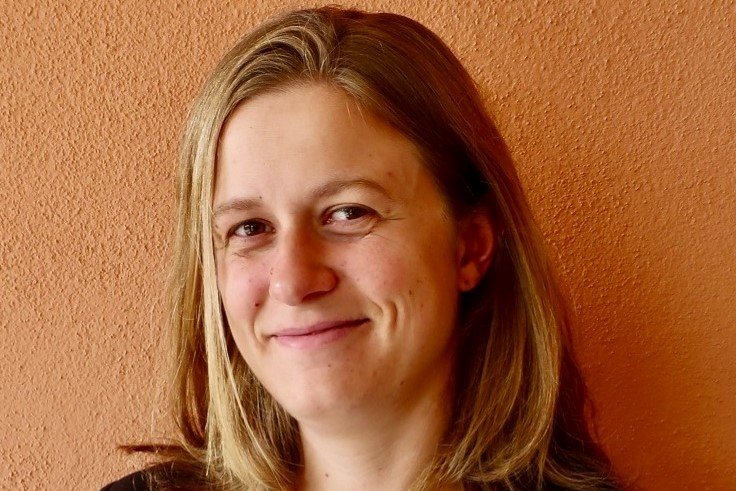Professor Martina Cardone Receives NSF CAREER Award

Professor Martina Cardone has been awarded the CAREER award by the National Science Foundation’s (NSF) Faculty Early Career Development (CAREER) Program. One of the most prestigious awards instituted by the NSF, it recognizes and supports faculty early in their careers who show the potential to “serve as academic role models in research and education and to lead advances in the mission of their department or organization.” The CAREER award minimum for the Division of Computing and Communication Foundations starts at $400,000 and is disbursed over a 5-year period.
Cardone's Project: Secure Communication in mmWave Networks
As wireless communication becomes ubiquitous, commercial entities are increasingly providing information or transacting business, over wireless networks. With the volume of wireless data transfer increasing, the communication industry is turning toward the millimeter-wave (mmWave) spectrum comprising frequencies from 30 gigahertz to 300 gigahertz to support the high data rates.
However, the open and shared nature of the wireless medium, makes it vulnerable to eavesdropping attacks which pose a serious threat to sensitive and confidential information related to mobile banking, credit card transactions, and health data. Today, the assumption that eavesdroppers have limited computational capabilities is one that is seriously placed in doubt by recent advances in (quantum) computing. Yet, in large and dense mmWave networks, it is reasonable to assume that an eavesdropper can intercept transmissions only over a subset of the communication links over which she has to be physically present.
Titled, “Foundations of Secure Communication in mmWave Networks,” Martina’s CAREER award winning project seeks to address the challenges posed by such threats by exploring and establishing protocols that can ensure secure communication over millimeter-wave (mmWave) networks, in the presence of an eavesdropper with unlimited computational capabilities but limited network presence.
The highlight of the project is the establishment of novel theoretical foundations that identify and model unique features of secure communication in the mmWave spectrum, and the study of their effect on the operations in the network layer. Martina’s research is multidisciplinary, and it leverages concepts and tools from other fields including information theory, optimization and linear programming, algorithms, and graph theory. The key specifics of her project include: introduction of a theoretical framework that captures the essentials of mmWave communication and eavesdropper capabilities; characterization of the maximum secure information flow and trade-offs over mmWave networks; and finally, the development of scalable and secure communication architectures.
Practical and Educational Outcomes
Upon successful completion of the project, Martina hopes to provide guidelines for the design of secure transmission mechanisms over mmWave networks. Given that the mmWave communication is expected to play a key role in supporting a variety of applications, and the pressing need for protocols that will maintain the confidentiality of data, the current project is compelling and can make significant and timely contributions to industrial and societal needs.
Martina has plans to share and integrate her research outcomes with students and the curriculum in several ways. As chair of the Student and Outreach Subcommittee of the IEEE Information Theory Society, she will use the opportunity to facilitate knowledge sharing of her project research. She also hopes to tap into the outreach opportunities available within the University of Minnesota and the ECE department. Other critical and relevant educational undertakings that Martina plans to pursue are the development of a graduate-level course on mechanisms to secure communication over wireless networks, mentoring of undergraduate students through avenues such as senior design projects, conference participation, and creation of short videos to share the information with a broader audience of students beyond the University of Minnesota.
Professor Martina Cardone earned her doctoral degree in 2015 from Télécom ParisTech, France with work done at Eurecom. From 2015 to 2018, she held postdoctoral positions at UCLA’s Henry Samueli School, and the University of Minnesota in ECE. In early 2018, she joined the Department of Electrical and Computer Engineering as an assistant professor. Her research interests are in estimation theory, network information theory, network coding, wireless networks with a special focus on their capacity, security, and privacy aspects. Besides the CAREER award, Martina also leads two other NSF-funded projects.